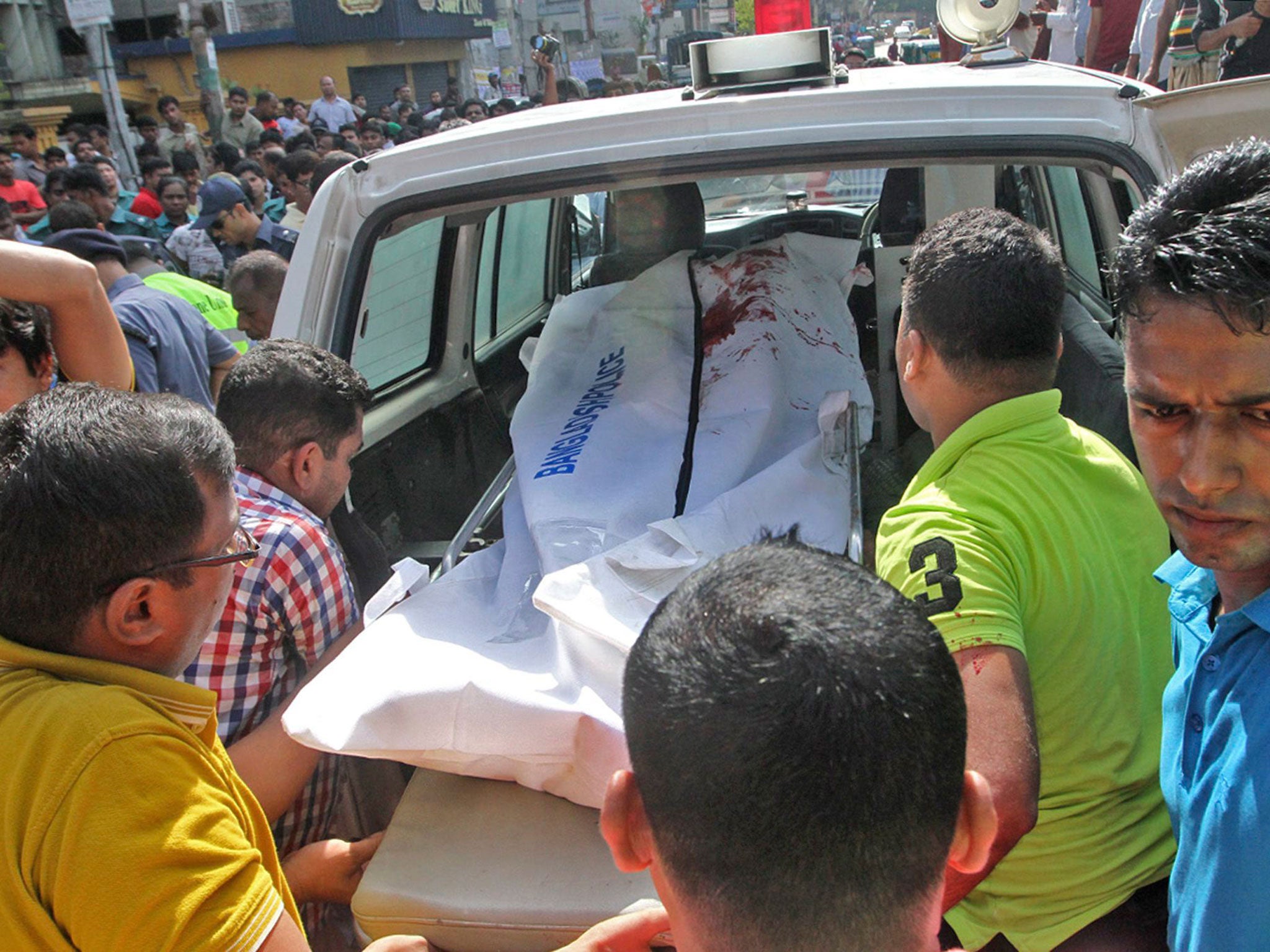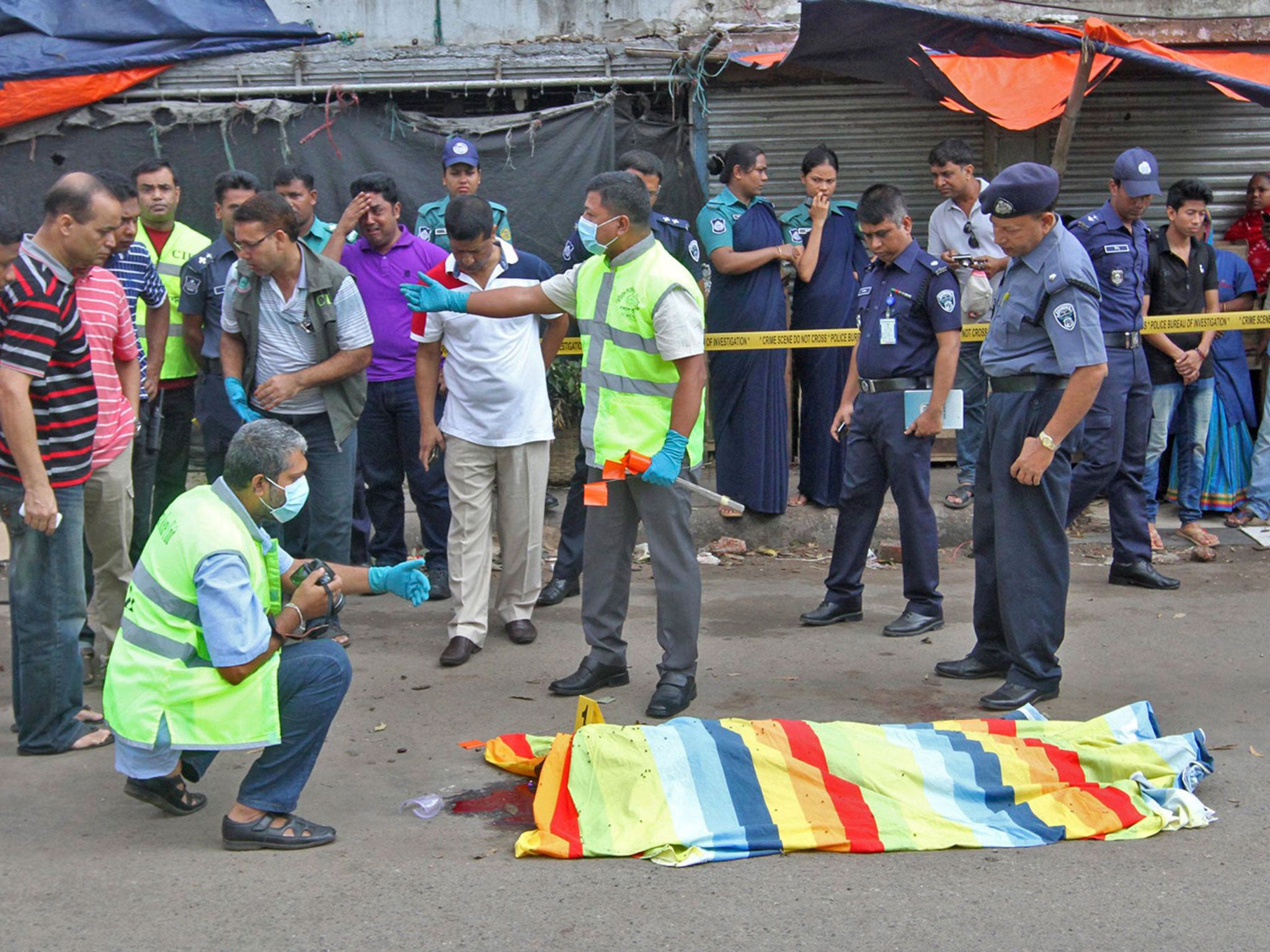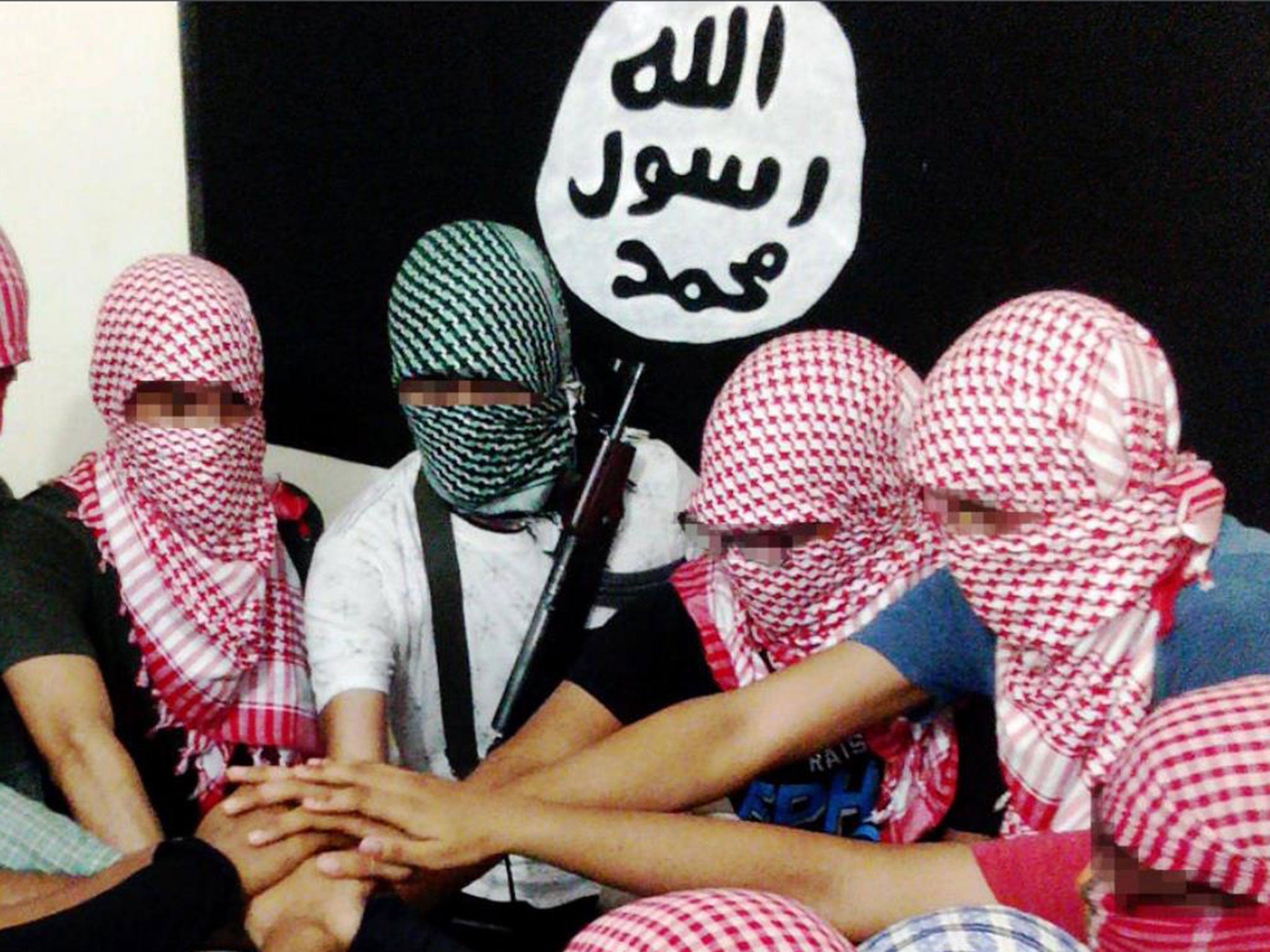Bangladesh attacks: Police detain 1,600 suspects in crackdown after murders claimed by Isis and al-Qaeda
Many of those arrested were believed to be petty criminals and there were fears the political opposition would be targeted

Around 1,600 suspects have been detained in Bangladesh as police attempt to stop a wave of brutal attacks against religious minorities.
Isis has claimed responsibility for several of the murders, including the death of a Hindu man on Friday, as have local militant groups affiliated with al-Qaeda.
A series of bloody machete killings, which initially targeted secular bloggers, started in 2013 but the increasing frequency and claims by Isis have alarmed the international community.

Police said officers and paramilitary soldiers were sent out across the country on Thursday, raiding suspected militant hideouts and detaining about 1,600 people by the following night.
But Kamrul Islam, a spokesperson for the Bangladeshi police, said the majority of those arrested were petty criminals.
Only 37 of them are suspected to be radical Islamist militants, including three charged with alleged membership of the banned fundamentalist group Jama'atul Mujahideen Bangladesh.
None of the suspects are believed to have organised the attacks, said police as investigations continued.
Prime Minister Sheikh Hasina's government has faced criticism for failing to prosecute suspects for dozens of killings carried out over the past two years.
Victims include atheist bloggers, foreign aid workers, university professors, gay rights activists and religious groups including Hindus, Christians and Shia Muslims.
In a statement issued through its propaganda channels on Friday, Isis claimed its militants were responsible for hacking a Hindu ashram worker to death in the northern district of Pabna.
But Bangladeshi authorities have persistently denied Isis or al-Qaeda have a presence in the country, sparking warnings from counter-terror monitors including the Site Intelligence Group, which urged the government to “face the truth.”
Ms Hasina announced the anti-militancy campaign after the wife of a police superintendent was shot and stabbed to death on 5 June as she was waiting with her son at a bus stop.
The victim had been an ardent campaigner against Islamist militants and her murder stunned the country's establishment after previous attacks targeted low-profile religious leaders and bloggers.
Speaking in Parliament on Wednesday, the Prime Minister vowed to root out radicals bent on spreading terror and violence in a bid to introduce Islamist rule.
“If they think they could turn Bangladesh upside down, they are wrong,” she said. “They will be exposed to justice in the soil of Bangladesh and their patrons will also not be spared.”
In pictures: Bangladesh attacks
Show all 10The Government blames the attacks on domestic groups aligned with the political opposition, though it has presented no evidence and opposition parties deny the allegations.
The rival Bangladesh Nationalist Party (BNP) said it was concerned that the accusations would lead to efforts to suppress political dissent.
“The crackdown is a strategy which the government earlier used to suppress the people's movement,” said secretary general Mirza Fakhrul Islam Alamgir.
“We fear that they will again oppress the opposition in the name of conducting a crackdown.”
The UK’s Foreign and Commonwealth Office listed Bangladesh as a “human rights priority country” in a recent report, saying tensions between the BNP and governing Awami League party were impacting on security as extremist attacks rose.
The assaults have broadly followed the same format, with a group of young men armed with knives or machetes attacking their target in public, shouting insults while hacking them to death and fleeing the scene.
Suspects have been arrested for some of the attacks but none have yet been prosecuted.

Isis announced its presence in the country late last year and analysts believe they are recruiting from pre-existing extremist groups who have been carrying out attacks since 2013.
It has been increasingly advertising its alleged expansion into the country through official propaganda channels, with two large features on the subject in the most recent issue of its English language magazine.
Calling the faction its “Bengal” province, it hailed the killing of Hindu businessmen, priests and a Shia preacher.
A militant named as the “emir” of the faction, Shaykh Abu Ibrahim al-Hanif, vowed to target Shia and Ahmadi Muslims, “crusaders”, Hindus and missionaries.
Amnesty International has criticised the government for inaction, claiming that it is creating a culture of impunity and failing to address increasing reports of people receiving threats.
“The brazen announcement by violent groups that they will continue targeting those they perceive as ‘insulting Islam’ should shake the Bangladeshi authorities out of their complacency,” said Champa Patel, the group's director in South Asia.
“Ignoring the problem is not a solution. The authorities must categorically condemn these killings, carry out a prompt, thorough, impartial and transparent investigation, deliver justice for the victims, hold the perpetrators accountable, and protect those still under threat.”
Additional reporting by AP
Subscribe to Independent Premium to bookmark this article
Want to bookmark your favourite articles and stories to read or reference later? Start your Independent Premium subscription today.




Join our commenting forum
Join thought-provoking conversations, follow other Independent readers and see their replies
Comments